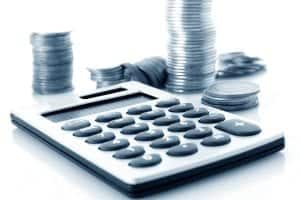You can score a low-interest, long-term SBA loan if you meet all of the requirements. Here's what you need to know about qualifying for an SBA small business loan.
Our content reflects the editorial opinions of our experts. While our site makes money through
referral partnerships, we only partner with companies that meet our standards for quality, as outlined in our independent
rating and scoring system.
SBA loans provide long-term small business loan options with low interest rates. Because of the competitive rates and terms, there are a number of requirements that borrowers must meet in order to receive one of these loans.
Keep reading to learn more about SBA loan requirements to see if you qualify.
What Is The SBA?
The Small Business Administration (SBA) is a federal agency that provides resources to support small business owners. In addition to educational materials and training, the SBA also provides low-cost, long-term loan options for businesses that struggle to find funding elsewhere.
How Do SBA Loans Work?
The SBA does not issue loans — this is done by third-party, SBA-approved lenders known as intermediaries. The SBA simply guarantees a portion of each loan, alleviating some of the risk put on the lender. With these guarantees, lenders feel more confident in funding small businesses.
The SBA also caps interest rates and has set repayment terms, ensuring that borrowers receive affordable loans, even after they’ve failed to qualify for other business loans. However, borrowers do have to meet a lengthy list of requirements and provide a significant amount of information and documentation to receive an SBA loan.
Basic SBA Loan Requirements
There are general requirements set by the SBA that all applicants must meet in order to receive a loan. There are also specific underwriting requirements by loan type that must be met. Here’s what to expect before applying for an SBA loan.
General SBA Loan Requirements
There are a few general requirements to receive an SBA loan. Borrowers must:
- Have a for-profit business
- Operate or plan to engage in business in the United States or U.S. territories
- Have exhausted other financial resources, including non-SBA business loans
- Have owner’s equity to invest
Ineligible Industries
While most businesses are eligible to receive SBA loans (provided all requirements of the SBA and lender are met), there are certain industries that are ineligible for funding. These include businesses engaged in:
- Investing
- Lending
- Speculation
- Multi-level sales
- Loan packaging
- Gambling
- Illegal activities
Nonprofit organizations, government-owned businesses, and religious organizations are also ineligible.
Business owners that are currently incarcerated or are on parole or probation are not eligible to receive an SBA loan.
SBA Loan Business Size & Revenue Requirements
In order to qualify as a small business that is eligible for SBA loans, you must meet certain requirements set by the SBA. Size is determined by factors like:
- Number of employees
- Average annual revenue
- Net income
- Tangible net worth
The specific requirements vary by industry. The SBA has provided a size standards table to help you determine if you qualify for SBA funding.
SBA Loan Credit Requirements
The personal credit requirements for an SBA loan vary by lender. In general, it is recommended to have a personal credit score of at least 680 to qualify. Of course, the higher your score, the higher your odds for approval.
Your credit report will also be a factor in your loan approval. Negative items on your credit report that may disqualify you include:
- Active bankruptcies
- Recent foreclosures
- Past defaults on government loans
Other negative items like late or missed payments will need to be explained to your lender during the application process.
SBA Loan Collateral Requirements
Collateral requirements for SBA loans vary by loan type. For smaller loans, including 7(a) loans of $25,000 or less, collateral is not required. For larger loans, collateral is typically required. The specific amount varies by factors including the type of loan, borrowing amount, and the strength of the borrower’s application.
Collateral is accepted in the form of business assets, including:
- Equipment
- Vehicles
- Inventory
- Accounts receivables
- Commercial real estate
In some cases, personal real estate may be used as collateral.
One thing to note is that the lack of collateral alone won’t disqualify a borrower from receiving an SBA loan, provided the borrower has a strong loan application.
All SBA loans also require all owners with at least a 20% stake in the business to sign a personal guarantee. This means that the owners of the business are held personally liable for the debt if the loan goes into default.
SBA Loan Requirements By Program
You may have to meet additional requirements set by the SBA or your lender. Here’s an idea of what to expect based on each SBA loan program.
SBA Standard 7(a) Loan Requirements
The Standard SBA 7(a) loan is the most common SBA loan. Borrowers can receive up to $5 million to use for nearly any business purpose, including equipment, commercial real estate, or working capital. Interest rates are extremely competitive, and repayment terms of up to 25 years are available.
In addition to the general requirements of the SBA, you may also need to provide a down payment of at least 10%.
SBA Express Loan Requirements
The SBA Express loan is nearly identical to the Standard 7(a) loan with a few key differences. Maximum borrowing limits are $500,000, and interest rates are a bit higher, although still competitive.
The main draw of this loan program is that an approval decision is guaranteed within 36 hours.
Like the Standard 7(a) loan, a down payment of at least 10% may be required.
SBA CAPLines Requirements
CAPLines are the SBA’s revolving lines of credit that offer flexible funding to small businesses. Borrowers can receive up to $5 million through one of four loan programs for contracts, builders, seasonal expenses, and short-term working capital needs. Repayment terms are up to 10 years.
The requirements for SBA CAPLines are mostly the same as the requirements for the Standard 7(a) loan, with a few additional requirements. Specific requirements vary based on the program selected. Here’s a breakdown of what to expect:
| CAPLines Program |
Requirements |
| Contract Loan |
- Must prove profitability based on prior similar contracts
- Must be able to bid on and perform the work outlined in the contract
- Must have the finances and expertise to complete the work on time and at a profit
|
| Builders Line |
- Must be a builder or construction contractor with managerial and technical experience
- Must plan for “prompt and significant” renovations
- Must prove prior success in bidding on and completing a similar project
- Must perform the work or manage the job with at least one supervisor onsite throughout the project
|
| Seasonal Line Of Credit |
- Must have been in operation for at least 12 months
- Must prove a pattern of seasonal activity
|
| Working Capital Line Of Credit |
- Must have accounts receivables or inventory
|
SBA 504 Loan Requirements
SBA CDC/504 loans are used for commercial real estate purchases, including commercial buildings, renovations, land, and long-term equipment. Maximum borrowing limits are $5 million, although some energy or manufacturing projects may qualify for $5.5 million. Repayment terms are 10, 20, or 25 years.
One of the unique requirements of SBA 504 loans is that borrowers must find two lenders. A Certified Development Company provides up to 40% of project costs. A third-party lender, such as a bank or credit union, provides up to 50% of project costs.
Borrowers of this loan must also be prepared to contribute at least 10% equity. Assets, cash, and other collateral may be used.
If funds are being used to purchase a building, the borrower must occupy at least 51% of the space. The remaining percentage may be rented out. For newly constructed buildings, the owner must occupy at least 60%, with plans to occupy at least 80% within the next 10 years.
SBA Microloan Requirements
SBA Microloans are ideal for newer businesses or businesses that don’t require a lot of capital. Microloans are provided by nonprofit lenders and have borrowing limits of $50,000, which can be used for most business purposes. Repayment terms of up to six years are available.
There are no additional requirements to receive an SBA Microloan. However, one thing to note is that while most nonprofit organizations can’t receive SBA loans, nonprofit childcare centers may qualify for Microloans.
SBA Disaster Loan Requirements
Businesses and individuals impacted by a disaster may be eligible to receive an SBA loan. There are four types of SBA Disaster Loans:
| SBA Disaster Loans |
Used For |
| Business Physical Disaster Loans |
Used to repair or replace items not covered by insurance following physical damage to a business |
| Economic Injury Disaster Loans |
Used to help businesses resume operations following economic injury |
| Military Reservists Economic Injury Loans |
Provides financial assistance to cover operating expenses when a military reservist is called to active duty |
| Home & Personal Property Loans |
Available to financially assist borrowers who have home or property damage, even if the borrower isn’t a business owner |
Rates, terms, and borrowing limits vary by loan type.
To be eligible to receive a disaster loan, borrowers must be in an SBA-declared disaster area. Businesses of all sizes, nonprofits, renters, and homeowners may qualify for SBA assistance.
SBA Loan Fees
The SBA requires lenders to pay guarantee fees, and this cost is often passed along to borrowers. Loans under the 7(a) program (including Standard 7(a) loans and Express loans) will pay a guarantee fee, as well as borrowers that receive a 504 loan.
Guarantee fees range from 0% to 3.75% and are based on the type of loan, borrowing amount, and term length.
In addition to guarantee fees, your lender may require you to pay other fees to receive your loan. This may include:
- Packaging fees
- Loan servicing fees
- Prepayment penalty fees
- Appraisal fees
- Title fees
- Attorney fees
Additional fees may apply. Your lender will explain all fees to you before you sign your loan documents.
SBA Loan Documentation Requirements
When applying for an SBA loan, you’ll need to provide documentation to show that you qualify for the loan. While documentation requirements vary, you should expect to provide these documents to your lender.
Standard Documentation For SBA Loans
- SBA Form 1919 – Borrower Information Form
- SBA Form 912 – Statement of Personal History
- SBA Form 413 – Personal Financial Statement
- Business licenses & permits
- Federal income tax returns from the last three years
- Resumes for each principal owner
- Overview & history of your business
- Profit & loss statements
- Balance sheets
- Reconciliation of net worth
- Financial projections
Documentation For Startups & New Businesses
Many SBA loans are targeted at established businesses that have been in operation for at least two years. However, there are options available for startups and new businesses.
Because these businesses are newer, they may not have all of the documentation required by the SBA. In these cases, additional information may be required including:
- A detailed business plan
- Proof of industry experience
- Financial projections
Documentation For Acquiring A Business
If you’re using your SBA loan to acquire a business, you may be required to provide documentation including:
- Balance sheet and P&L for business that is being purchased
- Prior years’ tax returns for the business being purchased
- Franchise or licensing agreements
- Proof of equity injection
- Schedule of inventory, supplies, fixtures, and equipment
- Proposed Bill of Sale
The Bottom Line On SBA Loan Requirements
Once you’ve determined you qualify for an SBA loan, you can start the application process with an SBA-approved lender. You can use the SBA’s Lender Match tool, get a referral from your current financial institution, or use an online lender like SmartBiz that simplifies and expedites the process.
If you don’t qualify, there are other options available. Banks, credit unions, and alternative lenders provide the best small business loans, lines of credit, and other funding opportunities to help you grow your business. With a little research and comparison, you can find the option that’s right for you.










